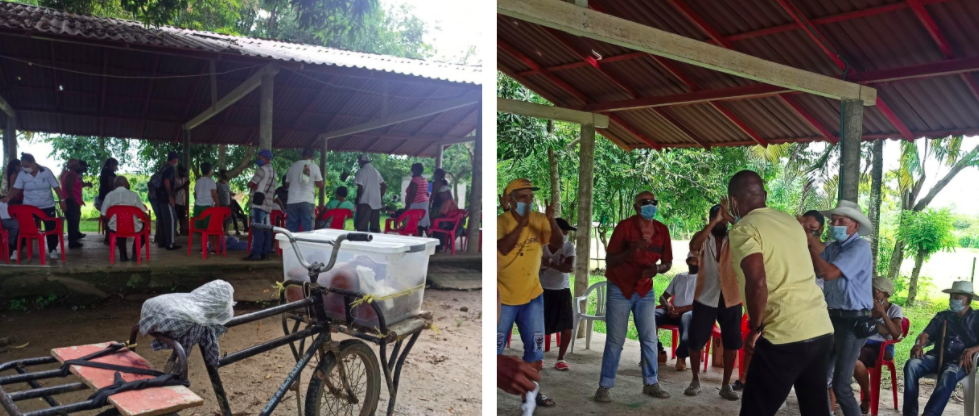Project Update Blog
Report on the first field trip
Isabel Zuluaga-Callejas and Gabriel Saldarriaga-Ruiz from the University of Antioquia in Colombia update on the project’s first field trip

After more than a year since the pandemic for Covid-19 started, Colombia is still trying to force a return to some sense of normality.
The pandemic brought a lot of disruptions in every aspect of Colombian society. It hit academic researchers hard and saw their capacity to go into the field to collect data limited by public health restrictions. This also affected our project but nevertheless, we’ve been working hard on the project and have managed to make some progress. We thought it would be a good idea to take this opportunity to tell you about some of the things we’ve been working on. Fieldwork is an integral part of our project, and we’re happy that the Medellín based team could finally go to Turbo in the second week of August.
Like every region in Colombia, the Urabá Antioqueño Region is characterized by its ethnic, cultural, biological and economic diversity. It is currently seeing a boom in economic development thanks to the construction of several ports, and the development of state-of-the-art highways that will facilitate the exit and entry of products, to the region and the Country. The development of roads and connectivity is something positive that could facilitate the implementation of mental health programs in the region. The extension of the Turbo´s territory is huge and can be a challenge for our mental health strategy. Turbo has an area of 3,055 square km, and some of the rural areas are only accessible by trails that can be reached only after a 4-hour drive; others are so remote that you can only get there using “pangas” (small boats).
We experienced first-hand what is happening in this territory, what historical processes have marked the elderly, and what social dynamics have emerged now that the vaccination process is once again allowing social participation.
We find ourselves in a territory with an ageing population and with stark inequity; low schooling of the elderly; low pension coverage; 87% of people of working age work in the informal economy; unemployment is at 17%; 41% of the population are below the poverty line; more than 50% of the population have declared themselves a direct victim of violence.
In Turbo, as a team, we developed a number of activities, met with different actors in the region, trained the survey team, and did focus groups and interviews.
We presented the project directly to officials of the Mayor’s office. We also met with the directors of different programs at the University of Antioquia section. Support for the dissemination of the results of our research and the creation of training programs for the academic and general community was secured. A radio program to be aired weekly was also secured.
In-person training of the Turbo-based team on qualitative and quantitative research methods was started. The focus of this training was a discussion on survey design and a discussion of questionnaire construction. This is important for the quality of conducting a survey process, which is part of the first component of the project.
We also conducted an observation of various activities that different institutions participate in with the community. We conducted interviews with elderly people, and the pilot of the interview guide for the qualitative component of the project was complete.
From this first field trip, we are left with three questions: How do we establish a mental health strategy in a territory with such marked social inequities? How do we mobilize different actors in the region that contribute to the construction of a comprehensive strategy that closes these inequity gaps?; How can the University of Antioquia lead a strategy of Social Responsibility with the elderly and with the ageing generations?
After an overall success from the first field trip, we are already planning the next one, which is going to be on the fourth week of September. More updates will follow.